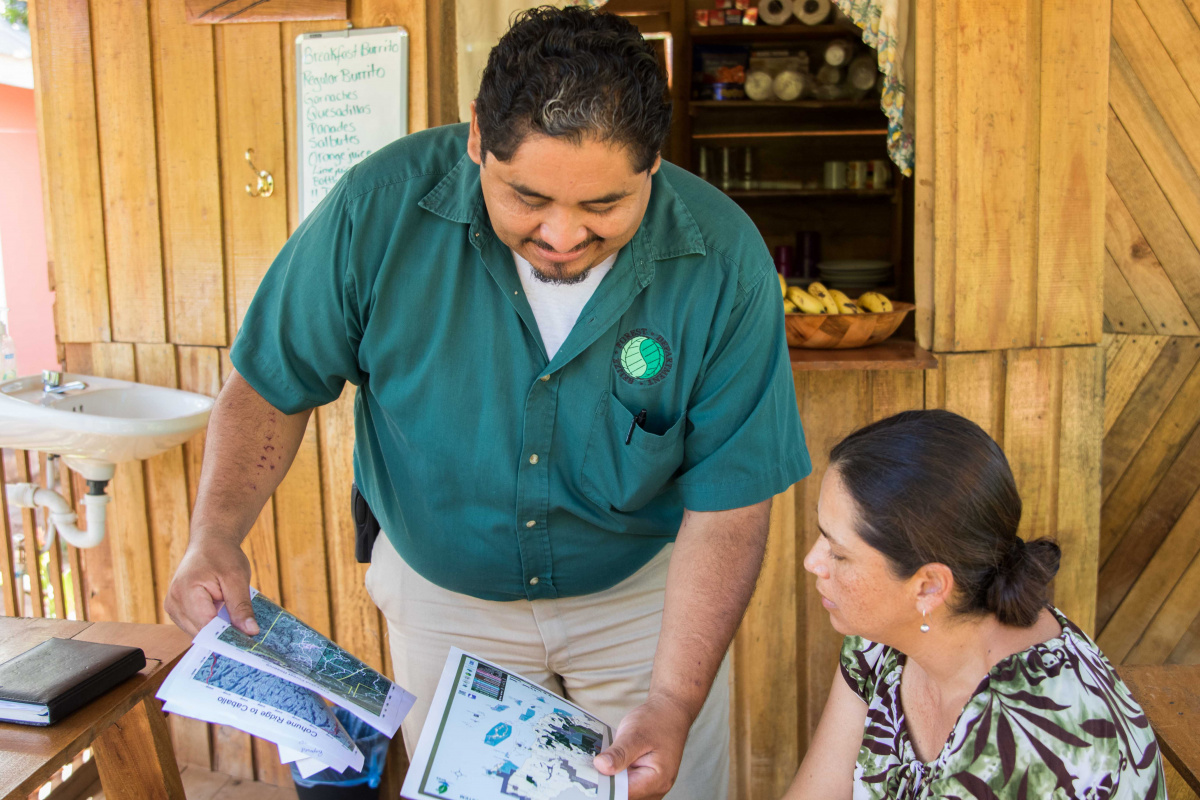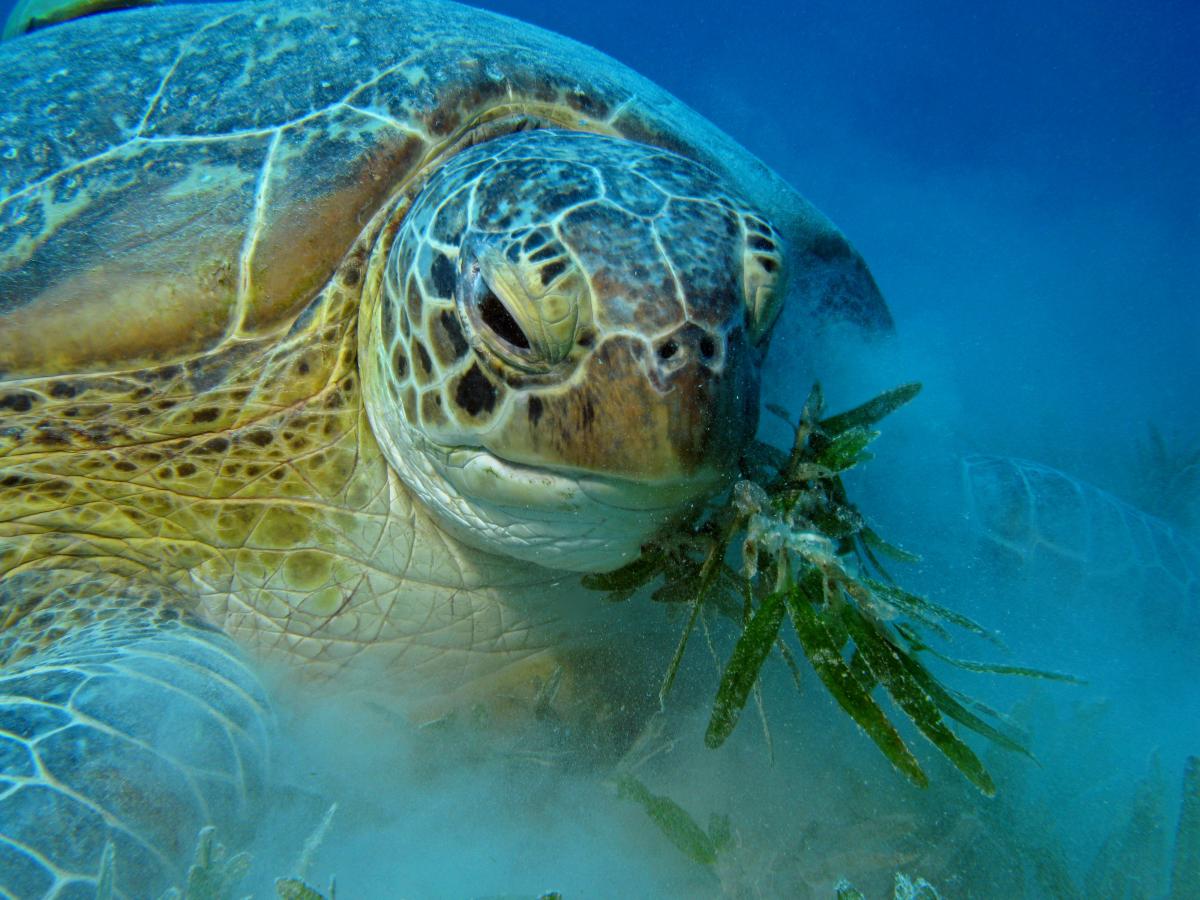Belize successfully implements concrete and sustained actions for gender inclusion in Selva Maya protected areas
The Selva Maya Natural Resources Protection Project in Belize now has a guide to facilitate gender mainstreaming in all phases.

Belice cuenta con una guía que facilitará el trabajo de transversalización de la inclusión de género en todas sus fases.
Photo: Eric Ecker / UICN
Belize, June 29, 2021 (IUCN). Belize, a signatory of several international agreements including the Convention on the Elimination of All Forms of Discrimination against Women (CEDAW), recently created a guide to incorporate gender considerations in the conservation and management of protected areas as part of the Selva Maya Natural Resources Protection Project.
“In the Selva Maya Project, the process to create a guide required establishing a baseline, with a review of international conventions and national policies because gender considerations in conservation and management activities were not reflected in the law and regulatory frame related to protected areas,” commented Wilber Sabido, Chief Forest Officer, Forest Department, Ministry of Sustainable Development, Climate Change and Disaster Risk Management of Belize.
The starting point for the document is an analysis of gaps and opportunities to examine whether the most relevant national instruments for protected areas planning and management incorporate gender considerations. It was also used to determine whether national policies and guidelines should be considered as reference in formulating these plans.
An individual and collective consultation process was also carried out with pertinent stakeholders, such as the National Women’s Commission and the teams that manage protected areas and prepare management plans.
“Since gender has become a crosscutting theme in all our activities, one of the ways we make sure it really is incorporated is by specifically asking participants and the leaders of stakeholder groups for their opinions,” commented Jennie Garcia-Saqui, PhD, technical advisor to the Forest Department. “We established from the start who the relevant stakeholders in protected areas were, and their roles were defined to determine whether they were implementers affected by the proposals, or influencers in decision-making processes.”
According to Garcia-Saqui, “It was important to make sure all voices were heard so we encouraged participants to express their opinion by asking questions like: ‘Have you said anything about what you want to do?’ ‘Do you have anything to contribute?’ or ‘What do you think about this?’, ‘How can the situation be changed?’ This makes the consultation dynamics more interesting, because once you give them the opportunity to talk, everyone has something to say and always from a positive or constructive standpoint”.
It is worth noting that the second indicator of the IUCN Green List Standard of Protected and Conserved Areas, tailored to the Selva Maya region, was taken into account. This indicator is designed to improve management by promoting effective social participation with gender perspective in planning and evaluation.
A document to address gaps, with near-term results
The main objective of the guide is to tackle differences in a practical way that can reduce gaps between the relevant groups and in turn, ensure that all people can enjoy the same rights, obligations and opportunities within the frame of management effectiveness in Selva Maya protected areas.
“It’s important to find out the perception of women, know how to incorporate their opinion in the work of the study or in what we’re doing. This itself allows them to see the importance of their voices being heard. I’ve often noticed during the process of creating the guide that women are more willing to make changes in activities, and they do it,” Garcia-Saqui commented.
For Edilberto Romero, Executive Director of Programme for Belize, his gender effort was concentrated on applying anti-discrimination legislation, such as equal pay for equal work, because the development of Selva Maya Project events in Belize, as in other countries, had focussed primarily on conservation actions. “We weren’t aware about mainstreaming gender perspective in general management. This is new for us in conservation organizations, and we have received training and sensitization through the Project. So now we’re more aware of gender issues and have developed a policy project for integrating gender considerations”.
According to Romero, this awareness-raising to tackle gender gaps has led to hiring more women in positions traditionally held by men, such as sustainable forest management, for example.
Recommendations for successful implementation with gender perspective are highlighted in this guide. Suggestions range from making sure to allocate enough resources to strengthen gender equality and women’s empowerment, to developing gender-sensitive approaches to address impacts and ensure women and men are not adversely affected. This allows equal access to project resources, services, technologies and training, which benefits everyone.
Achieving equitable gender participation entails seeking out local women’s groups and networks in publicizing efforts; networking with women’s and gender defenders’ civil society organizations as counterparts; and ensuring men and women are equitably represented on committees. In general, this also includes decision-making about protected areas management and in planning and carrying out activities, meetings and training; childcare must be available while these are taking place. It is also vital to ensure that the workload of women and girls is not unduly greater and instead, that their participation in unpaid domestic and care work actually decreases.
“I definitely believe these guidelines are going to drive equity. We are now thinking more about gender in conservation and applying equality to more than just staff hiring. I refer as well to making ourselves obtain women’s input for the projects and programmes we do,” Romero stated.
María García, President of Itzamna Society, which co-manages Elijio Panti National Park in Belize, said the document in general is important because it underscores the need to account for women’s participation in activities, so that they, and young people as well, have the same opportunities to express their opinion, be heard, and collaborate in the conservation of Selva Maya, a territory rich in biodiversity and culture.
“A woman must be respected; if the woman is doing work well, she should be given the position she deserves. Because if we do not empower our women there won’t be balance. I think to preserve our sacred forests it is necessary to look at culture. Culture has to be embraced along with the preservation of our natural resources; it cannot be separated out, because otherwise you would be causing an imbalance,” asserted García.
Itzamna Society’s leader hopes this process guarantees the involvement of all stakeholder groups, but mainly the equitable participation of women, because their force, their voice and their organizing power should be reflected in conservation and management activities as part of the Selva Maya Project’s implementation.
Global challenge, joint efforts!
#WeAreSelvaMaya



